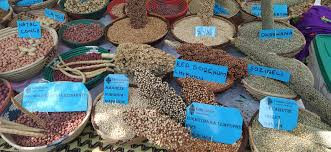
A LOCAL social and economic justice watchdog has described the amendment of the Sugar Production Control Act as a step in the right direction towards establishing workable value chains that dismantle the monopoly of Tongaat Hulett for efficient job creation and wealth transfer.
Government is set to amend the Sugar Production Control Act to review the production, milling, marketing and sharing of revenue from proceeds from cane supplied by farmers.
Currently, Tongaat Hulett Zimbabwe (Hippo Valley and Triangle) monopoly have monopoly over the country’s sugar production.
The Sugar Production Control Act of 1964 prohibits other private players from investing in sugar production and clearly states that no person shall grow sugar cane for the purpose of delivery to a factory unless they are licensed as a grower.
Zimbabwe, according to Zimbabwe Coalition on Debt and Development (Zimcodd), has 4 130 000 hectares of arable land with 25% being cultivated using manual draught power and animals.
“This issue has been largely blamed on trade injustice within the agricultural sector which systematically relegated the masses in the value chain. The hegemony, elitism, and monopoly in the agricultural value chains continue to exclude the ordinary citizens who on the other hand are the beneficiary of the fast-track land reform programme of 2 000,” the organisation said in its latest report.
“The monopoly in agricultural value chains is visible in tea, banana and avocado production and more explicit in sugar production. This monopoly is sustained by a myriad of legal, regulatory and institutional frameworks which are outdated.”
The organisation said the majority of these legal frameworks were enacted during the colonial era, in pursuit of the repressive objectives of a settler-dominated, racist capitalist economy that perpetuated the repression of the black majority.
- Tribunal to settle sugar milling dispute
- ‘Govt pampering looters with tax breaks’
- 5 more UZ students arrested
- Govt sleeping on the wheel: Zimcodd
Keep Reading
“In this regard, the Sugar Production Control Amendment Act served to legitimise the channelling of wealth into the hands of the elite and ring-fence sugar production against the black majority.
“Therefore, it is against this background that the Sugar Production Control Amendment Act is necessary for fostering trade justice by confronting the hegemony in the production of sugar through inclusive value chains,” it said.
Farmers from Mkwasine, Chiredzi, Triangle and Mwenezi told Zimcodd that sugar production was a closed sector in which the vested interest of multinational corporations takes precedence over national interest.
“The deep politics surrounding the Tongaat Hulett Zimbabwe operations should never be underestimated, as they go beyond personal politics to national politics and can easily trigger bilateral friction,” one farmer was quoted as saying.
Nevertheless, the organisation said the interests of Zimbabweans should always come first.
“The amendment of the Sugar Production Control Act is a positive stride towards correcting inherited colonial imbalances ensuring the success of the National Development Strategy 1.
“It is in the best interest of the country for the Act to be amended to ensure that viable value chains that break Tongaat Hulett monopoly are established for effective job creation and wealth transfer. Social and economic equity in sugar cane production is imperative in fostering trade justice,” it said.
Zimcodd said victory in breaking this monopoly would be guaranteed by not only declaring sugar a strategic crop but by seeing to it that robust measures that promote competition among investors are put in place.











